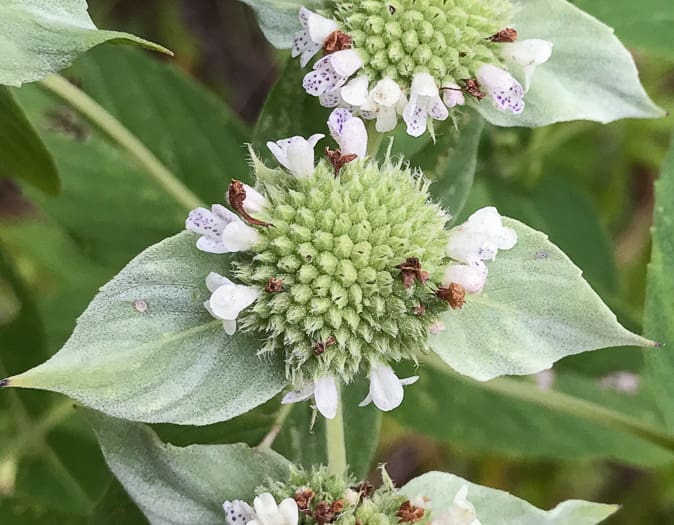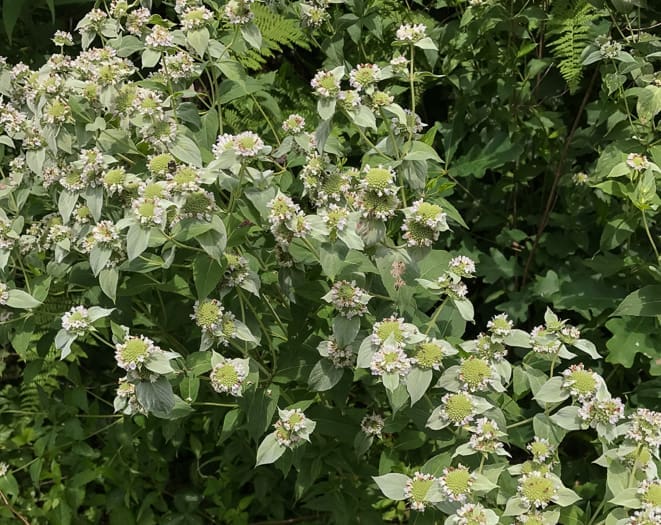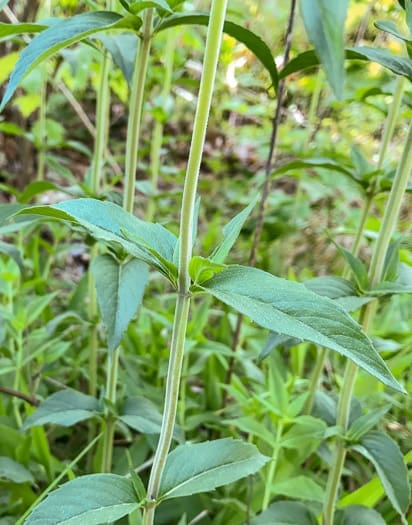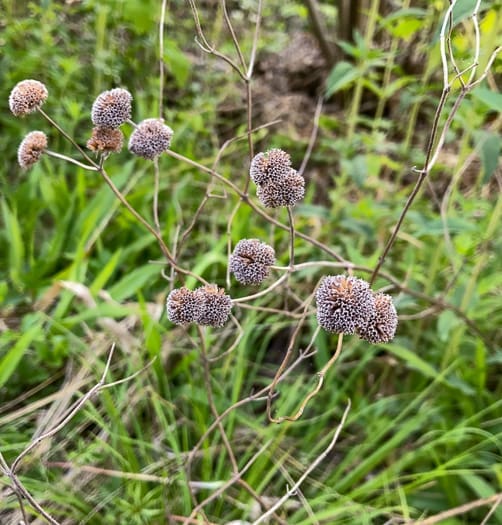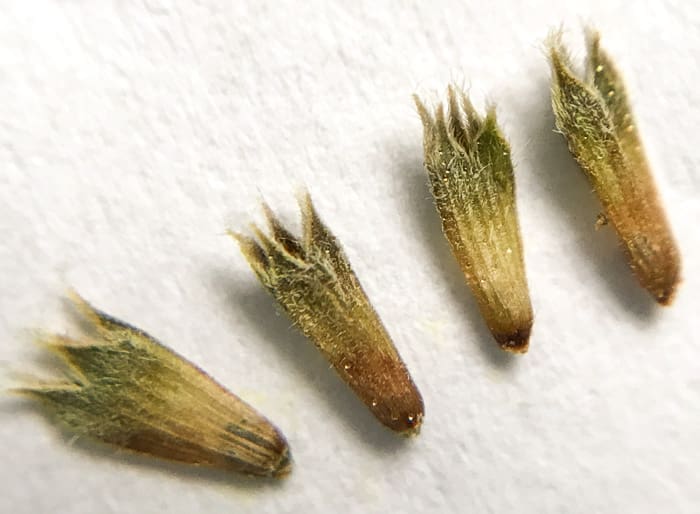Lamiaceae
blunt mountain mint
Pycnanthemum muticum
Synonyms
Brachystemum muticum
Koellia mutica
Other Common Names
mountain mint, short-toothed mountain mint
Plant Type
Herbaceous Wildflower
Life Cycle
Perennial
Typical Size
3-4 ft. tall
2-3 ft. wide
Tolerant of
Occasional Flooding
Inolerant of
Poorly Drained Soil
Propagation
By seed, By cutting, By division
Plant Propagation Notes
Seed can be moist cold stratified for three weeks before sowing.
Plant Planting Notes
Spreads by underground rhizomes. Allow for spreading.
Plants/Diseases
No significant disease or pest issues.
Wildlife Benefits
Nectar/pollen source for pollinating insects, Host plant for butterfly larvae
Leaves
The opposite, simple leaves are lanceolate to ovate with dentate margins; 1-3 inches long.
Flowers
White with a pink blush on a cyme
Fruit
Black capsule
Bark
Square stems
Toxicity
no known toxicity
Edibility
Leaves and flowers are edible.
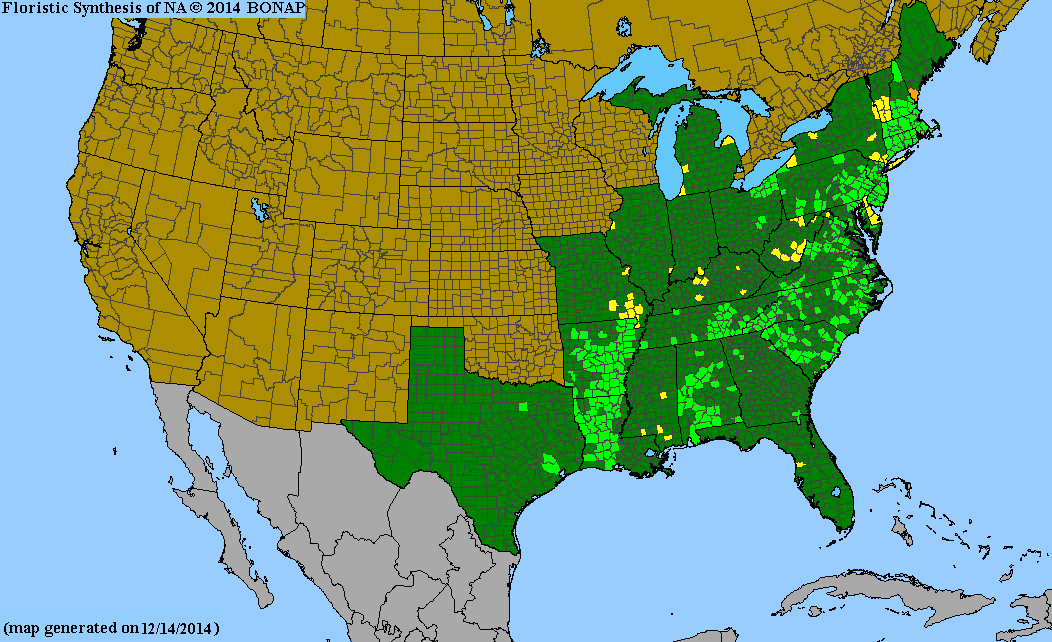
USDA Hardiness Zones
4, 5, 6, 7, 8
Light Exposure
Full Sun, Part Sun/Shade
Soil Moisture
Moist
Soil Drainage
Well-drained
Native in South Carolina?
Yes
Plant Native Habitat
Bogs, wet meadows, moist to wet forests
Global Conservation Status (NatureServe)
Secure (G5)
Federal Conservation Status (USFWS)
Not Listed
Distribution Notes
Common in the coastal plain and mountains. Uncommon in the piedmont.

